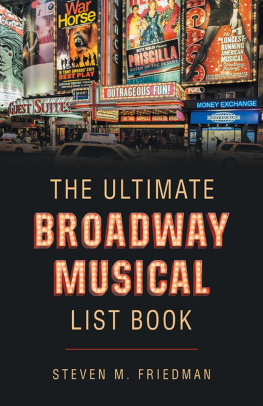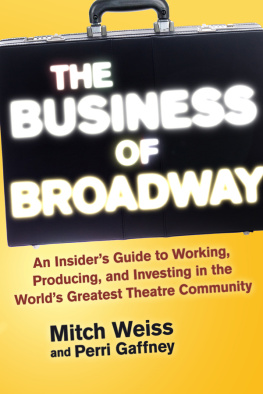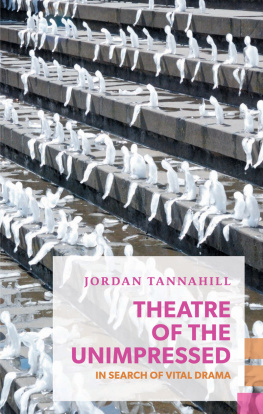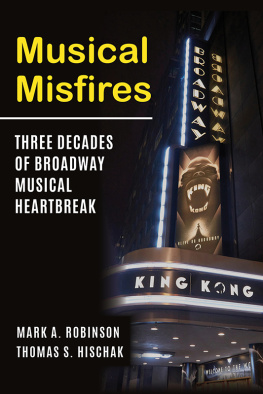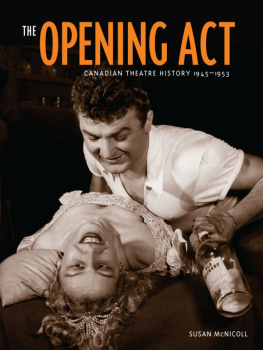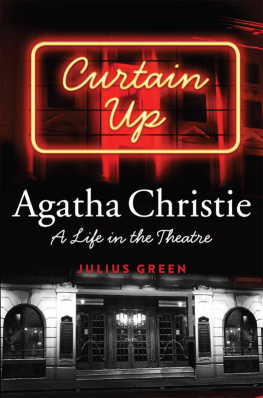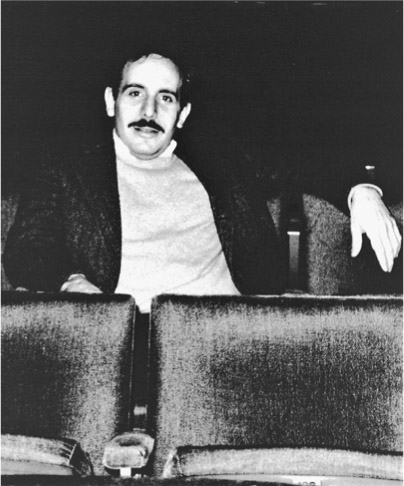Between performances on matinee day (1985).
PHOTO BY ARTURO E. PORAZZI
I T IS SOMETHING OF A CLICH TO THANK EVERYONE FOR EVERYTHING they ever did. Let me acknowledge, though, that without the innumerable people who crossed my path over the course of these pages, there wouldnt have been quite so many observations to observe. To quote the Bardor was it Stanislavski?there are no small actors, merely players.
A clutch of folk has provided information, advice, permissions, and assorted assistance. I offer appreciation, in random order, to the following: Max A. Woodward, John Handy, Heather Herbert Mays, Cheri Herbert, Kim Sellon, Mary Jo Slater, Jeffrey Richards, Ken Bloom, Michael Yoscary, Arturo E. Porazzi, Ann Churchill-Brown, Esther Margolis, Richard W. Kidwell, Bill Rosenfield, and Stephen Sondheim. I also salute the efforts of and illustration permissions from Mark Eden Horowitz, Vincent Novara, and Thomas Barrick of the Music Division of the Library of Congress; Philip Birsh and Andrew Ku of Playbill; Howard Mandelbaum of Photofest; and Sylvia Wang of the Shubert Archive. And without the supportive folk at Applause Books, you wouldnt likely be perusing these pages or e-pages.
Finally, I thank my wife, Helen, who has remained by my side through many days and nights of theatre-goingsome more enjoyable than otherssince 1994; and my now-adult children, Johanna and Charlie, who grew up adjacent to my Broadway world. The three of them have met some of the people and heard some of the stories, but these pages should help them finally make some sense of it all. Perhaps.
S ATURDAY IN M ARCH
M Y FIRST LEGITIMATE STEP THROUGH THE STAGE DOORNOT AS IN intruder talking my way in, but by express invitationwas set in motion a year later.
The morning of March 14, 1970, was bright and blustery. Or maybe not. I can tell you that I took a nine-something Long Island Railroad train from my suburb, forty-five minutes from Broadway. Or from Penn Station, anyway. Then the 1 train to Fiftieth Street, a mile up. I would have walked, but I wanted to get to the box office of the Broadway Theatre as soon as possible to buy a ticket for that afternoons preview of the new musical, Purlie.
I can only tell you the date because I know that Purlie opened the next evening; if I seem in these pages to come up with more than a few highly inconsequential dates, its because my inner calendar has always been tied to opening nights on Broadway. (The third book I wrote, in fact, was called Opening Night on Broadway.) I cant for the life of me tell you what I did or where I was on my eleventh birthday; but I can tell you where I was the day before at 2:30 p.m.: at the St. James Theatre watching the matinee of Hello, Dolly! My father, on a pre-dawn commuter train nine days earlier, read the New York Times review and had the good sense to go not to work but to the box office. Early, so hed be near the front when they opened at 10:00 with a line from the St. James all the way down Forty-Fourth Street to the Paramount Building on Broadwaywhich in those days, before internet ticketing or even telephone orders, meant that he was able to nab a good pair on the aisle for the following weekend.
Why would a seventeen-year-old select a musical like Purlie, with no stars, no well-known authors or directors, and no preliminary buzz or word-of-mouth? Preview business, I could tell from my subscription to Variety, was poor. Even so, I had a hunch that Purlie would be good. Which is common to many of us in the business. What makes you want to see this one, and not that one? Just a sense of something. From the moment you first hear about a musical, which in those days usually came from the preliminary ad in the Sunday Times, you think, it sounds good. Or something about it, specifically, just doesnt sound good. Or sometimes, youre simply not interested.
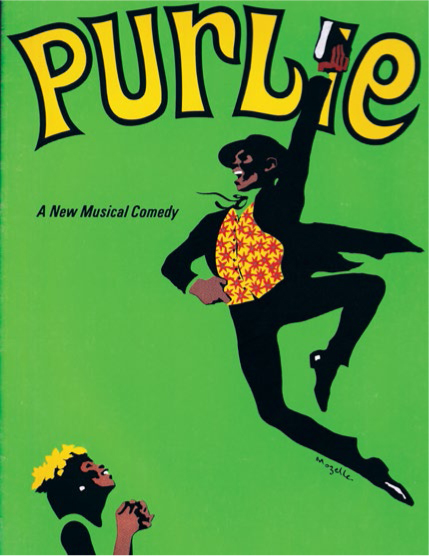
Sometimes you can immediately tell from the ad just how good a musical will be. Or not. Purlie (1970).
Purlie I wanted to see. I had, several years earlier, stumbled across an obscure 1963 film called Gone Are the Days! These things would show up on TV, often late at night; without videotapes or video recorders, you had to watch em when they were broadcast. Gone Are the Days! was a wickedly funny, if uneven, satire on race relations. I relished the humor as Ossie Davis battled the bigoted Ol Capn for his inheritance, the traditions of the Ol South crumbling around them. I learned from the opening titles that this was derived from a play, which turned out to be Daviss own Purlie Victorious.
Back in junior high school days, I whiled away boring classroom hours reading playscripts that I got out of the nearby well-stocked public library. After seeing the film, I quickly devoured Purlie Victorious. I could understand why the play had been a quick failure; Broadway audiences of 1961 and film audiences of 1963 werent much interested in social satire, at least when the good and wise and clever characters were Black and the villain was a bumblingly doddering white patriarchwho, in retrospect, was likely patterned on some still-sitting US senator or other.
Broadway audiences of 1970 werent likely to be interested, either; but here was a musical version of Purlie Victorious, coauthored by Davis with songwriters from the pop world and a cast of unknowns. Davis collaborated on the book but didnt star in the musical; they had a young actor named Cleavon Little, who turned out to be exceptionally good. By virtue of which he became the first Black actor to win the Tony Award for Best Actor in a Musicaljust a year after James Earl Jones won the nonmusical equivalentand the first virtually unknown actor to win the award.
The box office at the Broadway Theatre had two or three people waiting, which is to say no line whatsoever. I considered the choices. Preview prices, at the time, were lower than the post-opening scale. I had already learned that if you asked for a balcony seat and the house wasnt full, a sympathetic treasurer sometimes had the latitude and inclination to move you down. (This was before the arrival of the half-price TKTS booth in 1973, which is built upon just this sort of discounting.)
I asked if I bought a $2.50 ticket way upstairs, might it be possible to get a slightly better seat?
The matinee was filled with groups, was the reply. But that night at 8:30, the final preview, he could move me down. To the third row of the orchestra; the major critics were coming, and the producer wanted to fill in the front. Itll be much better from the orchestra, added the treasurer, who clearly loved what hed seen of the show. They just put in a new song last night. Its great.
Going to the evening show meant Id have to take a late train home, arriving past midnight; but a front orchestra seat for the final preview of Purlie for $2.50? Of course!
A S TAR E MERGES
And yes, that ticket for Purlie was well worth it. Not a perfect musical, due to some built-in flaws; but a highly entertaining one, with numerous heights making up for the several weaknesses. The show started deceptively, with a somber funeral. But the gospel hymn was interrupted by brass, with the dancers exploding into a true knockout of an opening number called Walk Him up the Stairs. They were carrying a coffin, but it soon became clear that they werent gonna walk him up, they were going to


